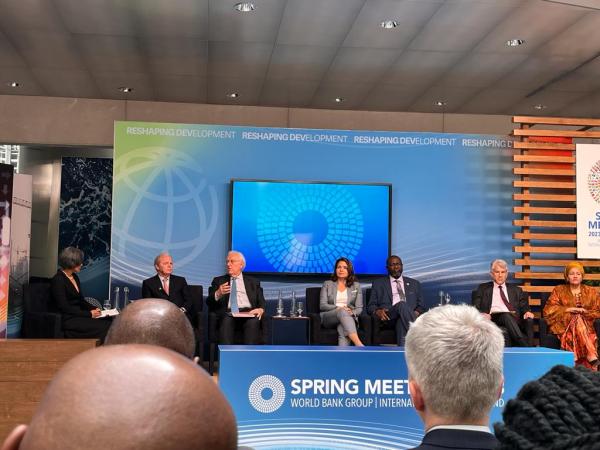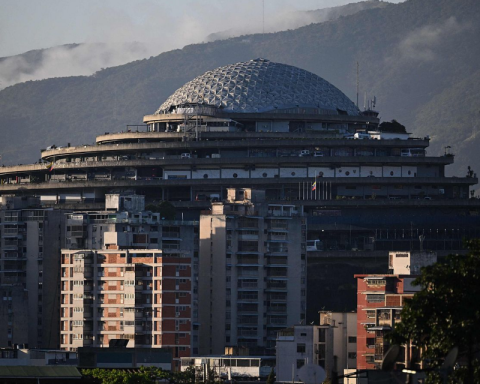The 2006 National History Award winner, Gabriel Salazar, delivered his vision of the role that political parties have had in this second pass to a new Magna Carta, in an interview with Mirna Schindler in The Radio Counter.
The academic highlighted the enormous distrust of society in political parties as a fundamental factor in explaining the current crisis.
He also pointed out that job insecurity, which affects large sectors of the population, as one of the ingredients of the current insecurity.
Rejection and mistrust in politicians
– From your perspective, where is the pendulum today and how do you explain what we are experiencing, with the transformation from a Chilean society of 2019 to one of 2023, which is more about order, moderation?
– It must be remembered that I am a historian and also a social historian, not purely political or economic. We work economics, politics, but from the social. That allows one to work on history in its natural processes that are not from day to day, from one day to the next, not even from two to three years, they are longer. Processes of medium duration, half a cycle, or even longer.
These long processes in history are more decisive because they are deeper, they are not everyday, they cannot be photographed. They cannot be smelled, they are not tangible. Deep processes go inside one, that’s why they are invisible.
When looking at history from there, all these things that are seen in the short term take on another color, take another direction, and that is why it is important to always look at the present from history, because you see there processes that are underway but that they go below, journalists don’t always capture them, politicians less so.
From the point of view of historical processes there is something that is important. You said 62% rejection, I tell you from 2014 to this day, all the surveys carried out by more or less serious agencies, for example the Center for Public Studies (CEP), show that citizens reject over 92% of politicians, it is a fact that has been maintained over time and that goes back a long way.
In fact, in 1991, the government of Aylwin’s first year, it was already 56% rejection, and that has been slowly rising and is maintained.
– Does it have to do with what happened (the triumph of Rejection)?
It is a profound trend that is not going to disappear due to the 62% who rejected a constitutional project.
– That 62% was read by the right as a reaction against a group that wanted to refound the country.
– The political class, the center right, particularly a group of businessmen, not big businessmen, read this as a shift to the right.
– Why not the big business community?
– For various reasons, because they are not necessarily involved in the situation, they read the historical process from other perspectives, and they realized that the situation is very bad from the point of view of the perspectives of a great businessman. The same CEP survey says so.
Businesses have been saying for a long time that the situation is bad, their confidence in the general situation for business has fallen by 40%. They are withdrawing their capital from Chile already six or seven years ago. It is estimated that around US$74 billion have already left the country in outward investment, because they no longer trust in inward investment, and because they even now think not only to withdraw the capital, but to go abroad themselves.
They are reading the situation not that we are on the way to the old great democracy as they say, the democratic tradition.
The cause of the triumph of Rejection
– We have this reality, Octobrism and violence, others speak of a progressive wave that was trying to provide a solution to the great pains of our people (pensions, health), and suddenly everything turns around, and we are basically forced to talk about security. There is a change. From A and now we are in Z, is it normal?
– In the short-term public opinion yes, in the deep processes of history, no. The same CEP survey presented the results, she said it clearly, it is a deep error -she said- that this 62% is interpreted as a pendulum that benefits the right.
– What is that 62% for you?
– I reject a text, it is also a rejection of everything that comes from the political. There is a rejection of politics in general, over 90% and it remains static. There is another very important fact, which is the fact that in this country only a third of adults take a book during the year, and 3% of those who take a book during the year understand what they read. That is to say, it is not being read, not like before, the image is much more interesting.
– The Convention was blamed for wanting to refound the country. And you have said in your book: “Has the traditional State of Chile ever been founded?” On page 7, you say that “Chile accumulates 11 failed re-foundations”, well, what are the constituent processes for, if not to re-found?
– There is a lot of data and information about it that I have gathered in 60 years of research. What I say there is fundamental: 11 times in 200 years, means that we have failed 11 times.
– If we think about that 62%, it was also with respect to those who represented the other option in what was the Convention.
– That 62% must be read in many ways, it is not just a rejection of politics, the convention, the left, etc. That reveals what I said, that we are not reading, let alone politicians. So people don’t have a clear notion of what the political process is like inside, they’re not interested.
So, of course, it rejects everything that comes from there, and the case of the other Convention is painful, because whoever read it, not even the experts, I know of, have read or understood what that Constitutional Convention was or the text they delivered.
I read “El Mercurio” every day, and what have I seen there: I have not seen any comment from an expert, a politician with years of circus, profound, of the constitutional text that was not approved. Not one, pure adjectives, they are “refoundationists”, “Octobrists”, “leftists”, they have the inflated disease of identity, they are pure adjectives.
I carefully read the draft and the final text twice, and there is a fundamental issue that no one commented on: that the Convention approved the creation of community assemblies that represent themselves in the regional ones, in a chamber that was called the regions that abolished the Senate. That meant the exclusion, deterioration and probably the marginalization of the political class.
When the citizenry wants to take the constituent power, which corresponds to it by nature by itself, all the politicians of the left, center, right, unite.
– Did we ever have a truly participatory Constitution?
– Only in 1828. It lasted less than a year because the Santiago oligarchy organized a mercenary army paid by the big merchants to defeat the patriot army that agreed with this Constitution, and the civil war that ended with the battle of Lircay was provoked. . The mercenary army won, so that Constitution did not last a year, and that Constitution was first discussed in the communes, councils, then delegates to a Constituent Assembly that was held in Valparaíso to wrest the Santiago oligarchy from it, and there it was approved with all the officers of the patriot army.
– What should have happened in Chile after this last attempt?
– Normally, the constituent power is an expression of the sovereign will of the peoples, sovereignty is inherent to the peoples, to the community. Because sovereignty is a collective will, it is not an individual will. The individual will is the free will of the individual. Sovereignty is a collective will.
In order for there to be sovereignty, there must be the possibility for communities to develop on their own, to integrate, to work. And the only possibility of doing that is through a social form, the assembly, the council, the crazy, communal assembly.
It was removed by Diego Portales in 1830 and has never been restored. We do not have councils, we do not have provincial assemblies, the citizenry has never had the opportunity to participate within the State to at least give their opinion.
security crisis
– How do you see the security crisis affecting us?
– There are two types of security. Let’s leave external security aside, two types of internal security, the one that has to do with the balance of civil society in general in terms of its expectations, will to develop, its living conditions; and the balance that has to do with crime. They are two very different things.
– About the last thing.
– Today there is a loss of internal security, firstly, and secondly, due to an enormous development of crime. Enormous. Historically speaking, every time the employment rate goes down or up, only precarious employment, not employment that secures a career, crime goes up. The lower the wage rate, the higher the rate of profit from crime returns.
– Where is the way out of the current situation in the country?
– Politicians have not solved this problem, which was already serious in 1830, to this day when it continues to be serious. There has been no substantive solution.
– Some say that this is the worst moment in the last 30 years, in terms of security.
– Yes indeed. But it is the impact of a Labor Code, of a Labor Plan that is also called, that imposes precarious employment as a norm. Between 60% and 70% of the jobs in Chile are all precarious, even in the university.
– What do you think of the whole situation that has been generated with irregular migration, with the arrival of gangs with a high level of fire that were not typical of our national reality?
– Aggravates the phenomenon. If I remember correctly from 2012-2014, around 7% unemployment, the immigration that begins to arrive in Chile increased this rate progressively, and now we are, they officially say 9-10%, but in practice, it is above the 12%-13%
Immigrants are mostly employed in what used to be underemployment, precarious street employment. And crime has inflated notoriously with all the characteristics of tropical crime.
– Make me a diagnosis of what you see is coming, depending on a Leftist Government that has to face an issue that is more complex for it.
– There are two things. On the one hand, we have to talk not so much about governments of the left, of the center. It is a political class, this government is a political class, it could have been from the left, it was not anymore, and it is clearly a political class. On the other hand, you have to see what is happening not with the political class, but with the people themselves, with the citizenry, with the citizenry, there you have to look and there are very interesting things happening.
– Like what?
– Mistrust of politicians is a structural fact, that will continue. You can project into the future what will happen with this tendency of citizens not to believe in politicians and what they intend to do, give a new Constitution for the politicians to their looks. What can happen there?
– And if the problems are not solved?
– There may be another social outbreak worse than the one in 2019, because that was romantic. This is not going to be romantic, obviously there is a rage in the street, one sees it all the time. That can produce an explosion, a non-romantic social outburst like the other, because we did not express our identity, we enjoyed being together on the street, we were a collective being, but this time, when we were angry, things would not be the same, it will not be the same.


















